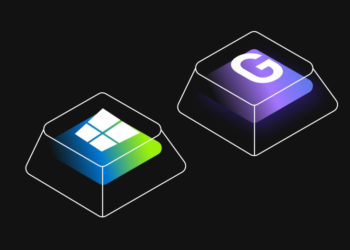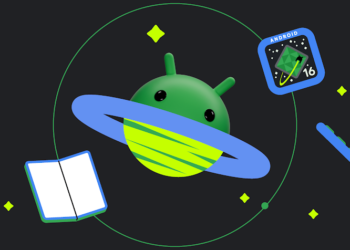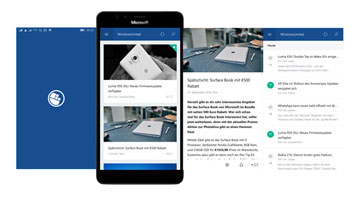Project Astoria/Project Islandwood, also Tools, die eine Portierung von iOS und Android Apps auf die Windows Phone Plattform einfacher denn je gestalten sollen, waren bisher eines der polasierendsten Themen der Build 2015. Besonders Windows Phone exklusiven Entwicklern, ist diese Veröffentlichung sauer aufgestoßen, Einer davon ist der Developer des berühmten Pocket Clients, Poki for Pocket, der uns freundlicherweise mit einem Spontaninterview zur Verfügung stand.
Jetzt meldet sich auch Star Entwickler Rudy Huyn zu Wort. Seiner Ansicht nach, sei diese Neuerung nicht so tragisch:
It’s ok for a small and simple apps (transit apps, tourism apps, administrative apps, etc…) but not for complicated apps, in this case, performances will be bad and buggy.
Just take an example : map control, I’m almost sure this one will not be 100% compatible or really restricted : this is one of the most hardest control to manage: multi-layers, pins, vectorial paths, etc… and it’s only one example. How many apps use maps? A lot! Android/iOS developers will need to adapt them code to use Bing maps instead of Google maps.
These converters will really help the platform, bringing all these interesting and simple apps but let be honest : boring to develop.
Don’t expect to have an Instagram, Spotify, Runastic, Waze, Snapchat, etc… with these converters. Candy crush is simplest to port than all these apps : cause it’s a game, all UI is managed by simple instruction to GPU + nobody said that it was easy to convert and 100% compatible.
Für simple Apps seien die neuen Tools perfekt geeignet. Bei komplexeren Anwendungen stöße man aber sehr schnell an seine Grenzen. Als Beispiel führt Rudy Apps mit Mapelementen an.
Aus seiner Sicht entstünde für den ambitionierten Windows Phone Entwickler durch die Portierung keine nennenswerte Konkurrenz. Lediglich die langweiligen (da zu simpel) Anwendungen könne man mit dieser Methode portieren. Das sei trotzdem ein Gewinn für die Plattform.
Das sind einige Limitierungen bei der Portierung:
– Android ported apps can only run on Windows 10 Mobile
– iOS ported apps can only run on Windows 10 Desktop (ed. Not sure this is true)
– Not all android/ios features can be converted
– Because iOS port uses source-code… you need all source codes, including source code of – libraries you uses… so you need to link your apps to these source codes, and if a library uses on an other one, same process… Can be really boring + not all these libraries are open-source
– for iOS, we only saw games, xib doesn’t seem to be supported (to create page and controls)
Das wären tatsächlic heftige Einschränkungen. Er scheint sich zum Teil aber nicht ganz sicher zu sein.
Sein Fazit:
For simple apps, it will be perfect, don’t forget that some of these simple apps are very interesting apps sometimes !
Let be honest, WP developers aren’t interesting to develop this kind of apps, we like to work on complicated custom controls, tweak performances, make beautiful UI and I’m sure we have our place on this new world and Windows 10 gives us new tools, new platforms, new way to create some new awesome applications.So let just say welcome to our new friends and enjoy windows 10.
Simple Anwendungen, ja. Komplexe Geschichten mit Maps, Spotify, Snapchat etc., nein.
Ich würde mich sehr über den Input unserer Developer in der Community freuen. Wie nützlich sind diese Tools überhaupt?










Ich finde die Idee interessant aber auch etwas schade. Irgendwie entsteht damit der Eindruck, MS versucht verzweifelt, andere Apps auf „seine“ Plattform zu bekommen, auch wenn das bedeutet dass der einheitliche UI Style darunter leidet und dass die Qualität dieser App Portierungen dem „Original“ der Plattform entspricht, für welche die App ursprünglich entwickelt und optimiert wurden zweifle ich auch mal an. Klar ist es derzeit noch zu früh um darüber wirkliche Aussagen zu machen. Von dieser Qualität der Portierung hängt es aber sicher maßgeblich ab, ob das für Android/iOS Entwickler ein gangbarer Weg ist. Wenn die Qualität nicht der Erwartung… Weiterlesen »